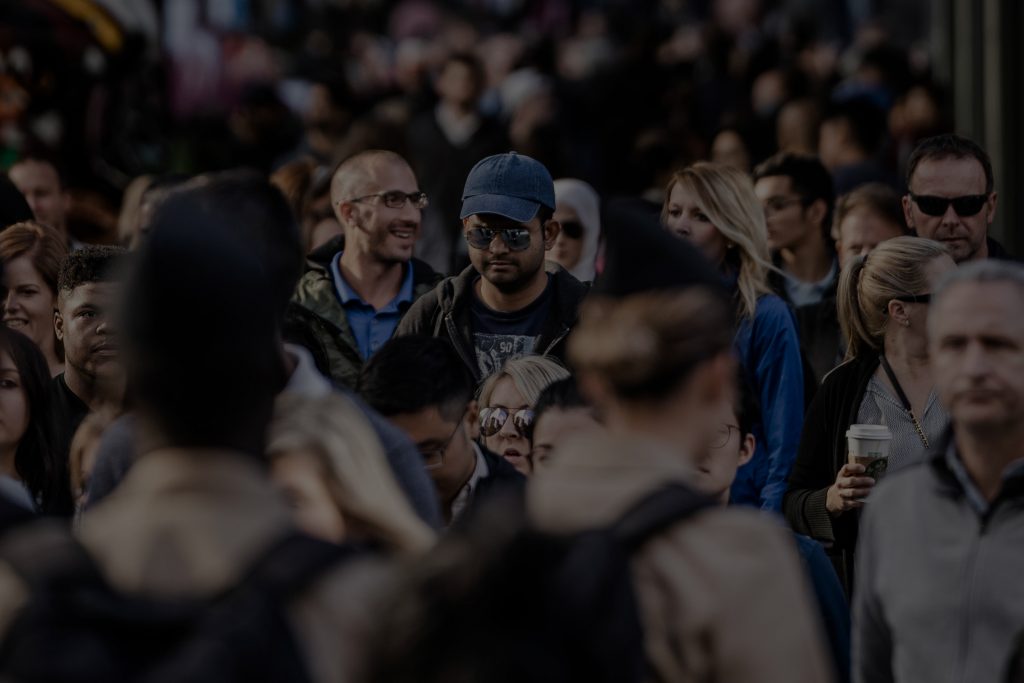The pandemic has had severe effects on the hospitality industry, with more than 15 percent of luxury hotels affected globally and around 40 percent of the economy. In these uncertain times, many questions are being raised within the industry. What does the future for hotels look like in a post-COVID world? How can digital identity be used to improve guest experiences and expectations as we advance?
Together with the Decentralized Identity Foundation (DIF) and experts from more than 35 global companies within the hospitality and travel industry, Condatis participates in a weekly Special Interest Group (SIG) working collaboratively to achieve a common goal – securely enhancing guest experience with decentralized identity.
The group develops technical specifications for decentralized identity implementations and works with various tech providers to tackle this challenge. It’s no secret that it’s a new age for hospitality, so how can the industry bounce back with a solution that works beyond COVID? What part does a decentralized identity system play in achieving this?
Switching up the pace with decentralised identity
Imagine you’re a regular traveller. You always stay at a variety of different hotels and chains. Your personal information and profile exist on all these separate systems. You may want to edit your address, change your name, or update your credit card details. Currently, you have to do this multiple times. So, how do we tackle this? How does decentralized identity improve this process? Well, it’s putting the user in control of their data. By building a decentralized solution and employing verifiable credentials the technology expedites the guest’s digital experience. Instead of repeating the process of updating details for multiple hotels and their records, the information is the guest’s and encrypted by their digital wallet. They hold all their details within their records, and when a hotel wants that information from you, it’s up to the hotel to request it. Guests can grant and revoke their credentials at any given time. Let’s put this into context in the next section of this blog.
Digital wallets and verifiable credentials
 Think about your wallet. You have a credit card, your driver’s license, and maybe even a few loyalty cards in there. With decentralised technology and verifiable credentials, you hold these forms of identification in a digital wallet like a Microsoft Authenticator app, Apple Wallet, or Google Pay. Technology such as Microsoft’s Authenticator app allows you to upload your credit card, a credential that your bank verifies. The hospitality industry will recognise this type of verifiable credential.
Think about your wallet. You have a credit card, your driver’s license, and maybe even a few loyalty cards in there. With decentralised technology and verifiable credentials, you hold these forms of identification in a digital wallet like a Microsoft Authenticator app, Apple Wallet, or Google Pay. Technology such as Microsoft’s Authenticator app allows you to upload your credit card, a credential that your bank verifies. The hospitality industry will recognise this type of verifiable credential.
For example, before a guest arrives at a resort, the hotel may issue a reservation credential directly stored in their digital wallet. This means the process of manually checking in and providing identification at reception is cut out, as all the pre-arrival checks have been completed through the digital wallet, and a key is issued confirming these details. Additionally, if reservations are in the wallet, they could be used to access discounts as part of local business or tourism partnerships.
With this credential, the customer can take a step further. There might be rules and regulations for specific areas of the hotel when it comes to vaccinations and negative COVID tests. The customer can upload their negative test result to their digital wallet. The pre-checks can help keep the hotel staff aware of the guests and what they can and can’t do. A secure digital solution allows the guests to maximise their stay without worrying about providing personal health-related information that may put them off their stay and is sensitive information for a hotel to store.
Guest expectations from 2021
 Understandably, guests are expecting procedures to be in place to protect them. As touched on above, the new electronic check-in/check-out system limits contact and touchpoints and allows for a better guest experience.
Understandably, guests are expecting procedures to be in place to protect them. As touched on above, the new electronic check-in/check-out system limits contact and touchpoints and allows for a better guest experience.
Social distancing measures are still a focus within the industry, and measures are in place to allow guests to feel safe. There is extra emphasis on sanitisation, touchpoints, and distancing remains where necessary.
Guests can feel more comfortable using their digital applications to register at their destination, order room service, and carry out any processes required by the hotel at their fingertips, with new digital technologies on their smartphones.
Join the conversation!
The Decentralized Foundation Hospitality Special Interest Group meet to discuss and advance the adoption of blockchain-based decentralized identity. We have been working alongside major travel industry giants to discuss the implementation of DID across the globe. With experts such as Nick Price and Douglas Rice, we collaborate on a weekly basis to innovate this industry. For more on the SIG get involved here.
Join usMore on Decentralised Identity
 Bring Your Own Identity – You Own It! We take a look at the identity model called Bring Your Own Identity, and how decentralization brings privacy and data ownership. Learn more about decentralized identity
Bring Your Own Identity – You Own It! We take a look at the identity model called Bring Your Own Identity, and how decentralization brings privacy and data ownership. Learn more about decentralized identity A new age for hospitality with decentralised identity The pandemic has had severe effects on the hospitality industry, with more than 15% of luxury hotels affected globally and around 40% of the economy. In these uncertain times, many questions are being raised within the industry. What does the future for hotels look like in a post-COVID world? How can digital identity be used… Learn more about decentralized identity
A new age for hospitality with decentralised identity The pandemic has had severe effects on the hospitality industry, with more than 15% of luxury hotels affected globally and around 40% of the economy. In these uncertain times, many questions are being raised within the industry. What does the future for hotels look like in a post-COVID world? How can digital identity be used… Learn more about decentralized identity Distributed, Decentralised, Self-Sovereign Identity: which one and why Decentralized identity, Distributed identity, Self-Sovereign identity. What's the difference and why should you care? Learn more about decentralized identity
Distributed, Decentralised, Self-Sovereign Identity: which one and why Decentralized identity, Distributed identity, Self-Sovereign identity. What's the difference and why should you care? Learn more about decentralized identity Benefits and use cases of SSI Experts Richard Astley and Rob Gathergood presented the benefits and use cases of Self-Sovereign Identity. We've recapped the key details. Learn more about decentralized identity
Benefits and use cases of SSI Experts Richard Astley and Rob Gathergood presented the benefits and use cases of Self-Sovereign Identity. We've recapped the key details. Learn more about decentralized identity Webinar recap: SIOP and Microsoft Authenticator This session focused specifically on SIOP and Microsoft Authenticator. In this blog, we’ll be recapping the Q&A session from the day. Learn more about decentralized identity
Webinar recap: SIOP and Microsoft Authenticator This session focused specifically on SIOP and Microsoft Authenticator. In this blog, we’ll be recapping the Q&A session from the day. Learn more about decentralized identity Self-Sovereign Identity for Developers Decentralised identity is creating big waves in a world that is increasingly dependent on digital identity, here's one for the developers. Learn more about decentralized identity
Self-Sovereign Identity for Developers Decentralised identity is creating big waves in a world that is increasingly dependent on digital identity, here's one for the developers. Learn more about decentralized identity Webinar Recap: Getting started with self-sovereign identity We've kicked off our webinar series on self-sovereign identity (SSI). Our first session: an introduction to SSI. Learn more about decentralized identity
Webinar Recap: Getting started with self-sovereign identity We've kicked off our webinar series on self-sovereign identity (SSI). Our first session: an introduction to SSI. Learn more about decentralized identity Identity in Depth Dr Elias Ekonomou goes into depth on Identity, and Defence. Discussinng the links, and the effect on Modern identity and access management. Learn more about decentralized identity
Identity in Depth Dr Elias Ekonomou goes into depth on Identity, and Defence. Discussinng the links, and the effect on Modern identity and access management. Learn more about decentralized identity Trust in Self-Sovereign Identity (SSI) In this blog, we discuss Trust in Self-Sovereign Identity, a more privacy-preserving model from centrally-held identities. Learn more about decentralized identity
Trust in Self-Sovereign Identity (SSI) In this blog, we discuss Trust in Self-Sovereign Identity, a more privacy-preserving model from centrally-held identities. Learn more about decentralized identity Getting started with self-sovereign identity What is self-sovereign identity? Why is it important? How does it work? Get started with self-sovereign identity. Learn more about decentralized identity
Getting started with self-sovereign identity What is self-sovereign identity? Why is it important? How does it work? Get started with self-sovereign identity. Learn more about decentralized identity